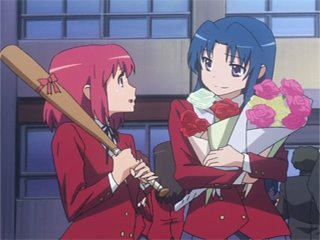For reasons I cannot be bothered to really explain, I am not fond of poetry. Make no mistake, I appreciate the effort required to compress (or expand, as the case may be) a single thought into something resembling the poem. I also have a deep appreciation for how much effort it takes to put words into the constricting structure of poetry, whether it be haiku, iambic pentameter, or whatnot. However, I simply lack the ability to really appreciate poetry itself. I have trouble, I guess, with evoking the necessary emotions and images in my mind when reading poetry. It fails to connect with me, you might say.
But, given recent events, I have come to find something. One poem does strike a chord with me. This has no connection with my recent personal tragedy or my generally dark outlook on life. The poem simply appeals to something inside me that I'm not quite sure how to describe. Anyway, the poem is Annabel Lee, by Edgar Allan Poe, master of American horror.
In lieu of anything of concrete value to put down here, permit me to quote his words.
It was many and many a year ago,
In a kingdom by the sea,
That a maiden there lived whom you may know
By the name of Annabel Lee;
And this maiden she lived with no other thought
Than to love and be loved by me.
I was a child and she was a child,
In this kingdom by the sea:
But we loved with a love that was more than love —
I and my Annabel Lee;
With a love that the winged seraphs of heaven
Coveted her and me.
And this was the reason that, long ago,
In this kingdom by the sea,
A wind blew out of a cloud, chilling
My beautiful Annabel Lee;
So that her highborn kinsmen came
And bore her away from me,
To shut her up in a sepulchre
In this kingdom by the sea.
The angels, not half so happy in heaven,
Went envying her and me —
Yes! — that was the reason (as all men know,
In this kingdom by the sea)
That the wind came out of the cloud by night,
Chilling and killing my Annabel Lee.
But our love it was stronger by far than the love
Of those who were older than we —
Of many far wiser than we —
And neither the angels in heaven above,
Nor the demons down under the sea,
Can ever dissever my soul from the soul
Of the beautiful Annabel Lee:
For the moon never beams, without bringing me dreams
Of the beautiful Annabel Lee;
And the stars never rise, but I feel the bright eyes
Of the beautiful Annabel Lee;
And so, all the night-tide, I lie down by the side
Of my darling — my darling — my life and my bride,
In her sepulchre there by the sea,
In her tomb by the sounding sea.
The poem has a dark beauty to it. It probably is the one poem in all literature that has managed to capture my interest purely as a poem and not as...something else. Anyway, do enjoy and...try not to let the mild implication of necrophilia affect you too much.
And though I had slain a thousand foes less one,
The thousandth knife found my liver;
The thousandth enemy said to me,
'Now you shall die,
Now none shall know.'
And the fool, looking down, believed this,
Not seeing, above his shoulders, the naked stars,
Each one remembering.
--John M. Ford, The Final Reflection
The thousandth knife found my liver;
The thousandth enemy said to me,
'Now you shall die,
Now none shall know.'
And the fool, looking down, believed this,
Not seeing, above his shoulders, the naked stars,
Each one remembering.
--John M. Ford, The Final Reflection
The Asylum Director

- VIIIofSwords
- "The only thing I was fit for was to be a writer, and this rested solely on my suspicion that I would never be fit for real work, and that writing didn't require any." - Russel Baker
Thursday, July 26, 2007
Subscribe to:
Post Comments (Atom)

1 comment:
Have you read the book The Five People You Meet in Heaven? Hee hee, honestly, I don't think it's your type of material to read yet I also think you're very much informed.
Anyway, because of this poem you have just posted, it reminded me of something from the book. It says:
Lost love is still love. It takes a different form, that's all. You can't see their smile or tousle their hair or move them around a dance floor. Memory becomes your partner. You nurture it, you hold it, you dance with it. Life has to end, love doesn't.
Post a Comment